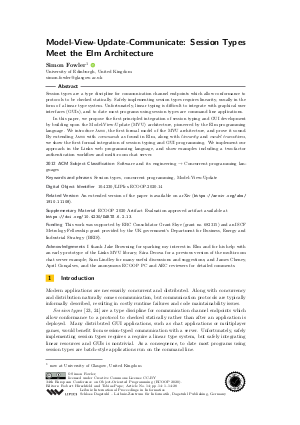LIPIcs.ECOOP.2020.14.pdf
- Filesize: 0.81 MB
- 28 pages

 Creative Commons Attribution 3.0 Unported license
Creative Commons Attribution 3.0 Unported license
































Feedback for Dagstuhl Publishing